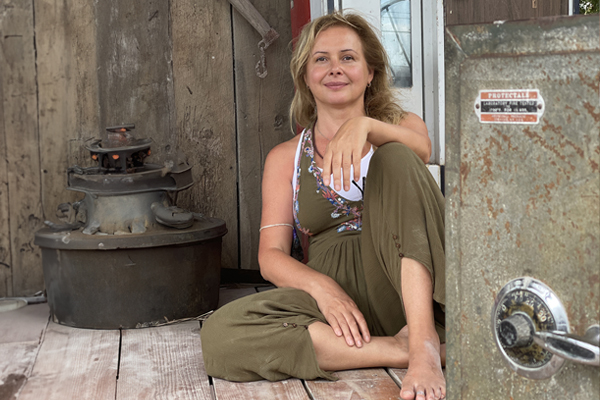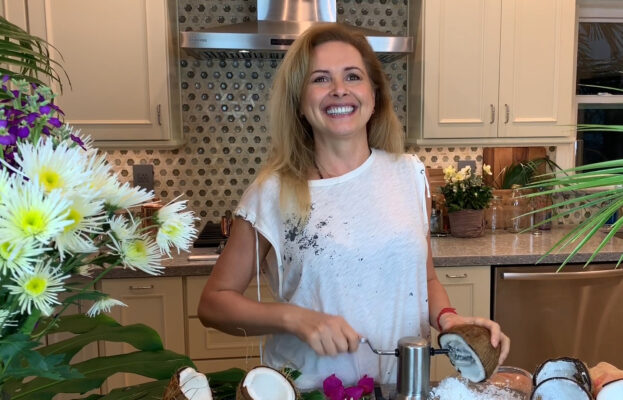Alone, but not Lonely: The Silent Strength Behind Private Pain
In our digital age, we’re more connected than ever before. Our lives, filled with an endless cascade of posts, likes, and comments, unfold in the vast, public stage of social media. We share celebrations and successes, from birthday cakes to graduation caps, first steps to faraway travels. But what happens when the confetti settles, the caps land, and the sun sets on our picture-perfect moments? What about the times when we face struggles, hardship, or distress? Where are these stories in our digital narrative?
These silent moments of strife often remain hidden, tucked away behind the scenes of our social media profiles. They don’t make it into our Instagram feeds or Facebook statuses. They don’t get retweeted or upvoted. Yet, they are as much a part of our lives as the moments we choose to share.
So why do we silence our struggles on social media? Why do some of us prefer the solace of solitude when navigating through distress? In this piece, I explore the multifaceted reasons behind our silence and seek to illuminate the quiet strength found in our private battles.

When the Rain Falls: Silent Battles and Hidden Strength
Have you ever wondered why the friend who seems to have a sixth sense for when you’re feeling down is the same one who seems to disappear during their own rainy days? Why the family member who’s always the first to offer comfort in times of trouble retreats to their shell when faced with their own sorrows? There are several reasons why many of us retreat inward during periods of distress, despite the social norm of sharing and seeking support.
The Power of Self-Reliance: Independence and Growth
The concept of self-reliance, for many, can be traced back to formative experiences during childhood. I remember being a young kid, perched upon a bicycle with a giddy mix of fear and anticipation. The firm grasp of my mother reassured me, offering support and balance as I wobble along on two wheels. But then comes the inevitable moment – she let go. Suddenly, I’m cruising down the sidewalk on my own, my heart pounding with exhilaration. It was one of my first tastes of independence, the first thrill of self-reliance.
Memory like that, though seemingly trivial, often becomes deeply embedded, shaping our perspective and behavior as we grow. As adults, many of us still harbor that yearning for self-reliance. When we face challenges, we dig deep, reaching into the reservoirs of our strength and resilience.
Many of us find satisfaction in dealing with problems using our own wisdom, skills, and resourcefulness. Overcoming obstacles independently reinforces our self-belief and fuels personal growth. The victories we achieve in solitude – no matter how small – build up our sense of capability and self-worth.

The Dual Edge of Self-Reliance: Navigating Independence and Isolation
However, like all strengths, self-reliance can morph into a weakness if taken to extremes. As adults, when we face difficulties, we may choose to retreat within ourselves, hiding our battles from the public eye. This solitude allows us to grapple with our issues independently, but it also carries the risk of isolating us from others.
While it’s true that self-reliance builds resilience, it’s equally valid that an overreliance on oneself can lead to emotional neglect. We are, after all, social creatures by nature. Connection, empathy, and shared experiences are vital components of our emotional well-being. They remind us that we are not alone in our struggles, that it’s okay to lean on others for support.
Research supports this balanced view of self-reliance. Studies have indicated that while self-reliance promotes resilience, its overuse can lead to feelings of isolation and unaddressed emotional needs (1).
The challenge, then, isn’t about discarding self-reliance, but about harmonizing it with our inherent need for social connection. Striking a balance between leaning on our own strength while also embracing the support of others can lead to more holistic and healthy ways of handling distress. It’s about learning when to ride solo, and when to let others join us on our journey. This balance – sometimes not easy to achieve – can lead to a richer, more nuanced experience of resilience and growth.

The Empath’s Silence on Social Media: An Unseen Offering
As we delve into the quiet corners of our lives, particularly the silence that envelops our struggles on social media, we uncover another layer – the empath’s silence. Highly empathetic people, with their uncanny ability to sense the emotions of others, often act as our emotional anchors. They’re the friends who subtly perceive when you’re upset, the family members whose comforting presence seems to manifest just when you need it most.
Yet, when it comes to their own distress, these empathetic people often tread lightly on the social media stage. Their heightened awareness of others’ feelings might lead them to withhold sharing their own struggles, for fear of burdening their loved ones. It’s like they’re holding an umbrella over a friend during a downpour, all the while allowing themselves to get drenched.
In the narrative of social media, these empaths often slip behind the scenes, quietly braving their storms in private. They take to heart the distress of others but express less of their own on public platforms. This balancing act (2) often leads empathetic people to underestimate their own need for support during challenging times.
This unique dynamic further illustrates the complexity of our silence on social media during periods of distress. Our online personas are shaped not only by our personal characteristics, such as self-reliance and empathy but also by our concern for how our digital footprint may impact those around us.

The Introspective Retreat
Everyone processes emotions differently. Some might prefer to discuss their feelings with others, while others might choose physical outlets like exercise. Then there are those who retreat into the tranquil haven of their inner being for introspection.
Think of this process as trying to listen to a gentle, whispering voice in the middle of a bustling, noisy room. It’s challenging, isn’t it? But imagine being able to step away from that noise into a quiet room, where that whispering voice is suddenly clear. For those who lean towards introspection, solitude provides that quiet room. It’s in this space that they can delve into their emotions and thoughts, unravelling them at their own pace.
In this context, practices like mindfulness and meditation can be incredibly powerful. Rooted in ancient traditions and validated by modern science, these practices help us cultivate an acute awareness of our present experience, emotions, and thoughts without judgement.
In fact, research by Massachusetts General Hospital (3) found that practicing mindfulness meditation for just eight weeks led to changes in brain regions associated with memory, sense of self, empathy, and stress. This points to the idea that such introspective practices can lead to better emotional and psychological health.
Yet, it’s crucial to distinguish between healthy introspection and destructive rumination. A study published in the journal Behaviour Research and Therapy (4) highlighted that rumination – the act of continuously obsessing over negative thoughts – can escalate anxiety and depression. This underlines the importance of striking a balance. Reflection should be about understanding and dealing with our feelings, not getting hopelessly stuck in them.
This is where mindfulness and meditation play a pivotal role. These practices teach us to observe our thoughts and feelings without judgement, to accept them as they are, and let them pass. It’s like sitting on the riverbank and watching our thoughts flow by, without jumping in and being swept away by the current.
In essence, introspection can be a sanctuary for many when navigating distress. But, like everything else in life, it is about balance. A quiet room is needed to hear the whispering voice, but it’s also essential to step outside once in a while and join the world with newfound clarity and understanding. Because it’s your journey, and you get to choose the path you walk on, the pace at which you go, and who gets to walk alongside you.

Dodging the Advice Avalanche: The Power of Listening
When we disclose our struggles and hardships, we often brace ourselves for the ensuing avalanche of advice. Although this advice usually comes from a place of good intention, it can often feel overwhelming, like an orchestra playing out of sync. Not only can it be overpowering, but it can also inadvertently hinder our journey of understanding and dealing with our feelings.
Imagine trying to navigate through a dense, unfamiliar forest. Now, imagine several voices around you, each shouting different directions, adding to the existing confusion rather than aiding in finding a clear path. This cacophony, this tumult of voices, can be more disorienting than helpful. It’s this fear of an onslaught of unsolicited advice that often prompts some people to keep their distress hidden away.
However, what if instead of shouting directions, these voices simply listened? Often, the most profound assistance doesn’t come in the form of advice, but as an empathetic ear, willing to listen without judgment or interjection.
When someone confides in us, they are not always seeking solutions or advice. Many times, they are looking for a safe space to voice their thoughts and feelings, to untangle the complexities of their experiences, and to find their own clarity. Our role, then, is not necessarily to provide answers but to be present, to listen actively, and to validate their feelings.
Active listening isn’t just about being quiet while the other person talks. It involves expressing empathy, asking insightful questions, and providing affirmative responses. It’s about creating an environment where the other person feels heard, valued, and understood.
The renowned Swiss psychiatrist and psychoanalyst Carl Jung once said, “You are what you do, not what you say you’ll do.” In the context of offering support, this means we are more helpful when we actively listen and provide emotional space for people to express themselves rather than promising to solve their problems or flooding them with advice.
The act of listening can be incredibly healing. It can validate people’s feelings, make them feel less alone, and even help them make sense of their experiences.
So, the next time someone opens up to you about their struggles, keep in mind: You don’t have to have all the answers. Sometimes, all you need to do is listen.

Listening in the Age of Social Media
In the world of social media, where we’re often bombarded with polished snapshots and well-crafted narratives, listening takes on a slightly different but equally important form. Here, active listening is less about verbal responses and more about our interactions and engagements with the content shared by others.
When someone shares their struggles or hardships online, they’re reaching out, looking for that safe space we discussed earlier. They are not necessarily seeking solutions but a sense of understanding, solidarity, and validation. So, how can we provide that through the digital landscape of social media?
Here, active listening manifests as thoughtful comments, empathetic reactions, and respectful engagements. It’s about acknowledging the personal experience, offering words of encouragement, or even simply expressing that you’ve heard them by responding with a caring emoji. Such acts of digital empathy can provide a sense of comfort and validation.
However, there’s an important point to remember here. Just as in face-to-face interactions, unsolicited advice can be overwhelming and counterproductive online. Before jumping in with well-meaning suggestions or personal anecdotes, it can be helpful to ask if the person is open to receiving advice. They might just want to be heard and not be looking for solutions.
In a way, this brings us to the understanding that the essence of communication — listening, understanding, and empathy — remains the same, whether we’re interacting face-to-face or in the digital realm of social media. It’s about creating an environment where people feel heard and understood, regardless of the medium.
And for those of us who choose to remain silent during times of distress, it’s essential to remember that our choice to share or not share our struggles doesn’t determine our authenticity or value. Each of us navigates the ups and downs of life in our unique way, and each approach is valid.
Social media is a tool, a platform. How we choose to use it, what we choose to share or withhold, ultimately depends on us. What matters is that we stay true to ourselves and respect the choices of others. Because in the end, whether online or offline, “we’re all just walking each other home.”

Navigating the Social Jungle: Privacy, Wholeness, and Validation
As we voyage through the unpredictable seas of life, filled with crests of joy and troughs of sorrow, victories and defeats, love and heartbreak, we curate which parts of our journey we wish to share with the social world. We instinctively understand that not every struggle, not every tear shed in the silence of the night, not every heartache we endure, needs to be broadcasted.
It’s akin to being in a bustling city filled with prying eyes and curious onlookers. We wouldn’t shout out our most intimate conversations or deepest reflections on a busy street. Just like that, it’s natural to hold back certain experiences on social media. And this isn’t about concealing secrets or fabricating an ideal life; it’s about preserving a sanctum of personal authenticity and vulnerability.
This sanctuary we create, this private space, serves a significant purpose. It allows us the freedom to be wholly ourselves without the scrutiny or judgment of others. It offers a respite from the ceaseless buzz of external opinions and expectations. In this space, we’re free to introspect, to feel, and to heal in our unique ways.
When we talk about privacy in this sense, we’re also talking about wholeness. Wholeness is about embracing the full range of our human experience — the light and the dark, the triumphant and the challenging, the pleasant and the painful. But to acknowledge and explore these facets doesn’t necessitate their public disclosure. It’s absolutely possible, and often necessary, to privately honor the aspects of ourselves that we’re not ready or willing to expose publicly. This self-acknowledgment validates our experiences, reminding us that we are more than the snippets of life we choose to share on social media.
Moreover, the choice to maintain certain experiences private does not detract from the authenticity of our public persona. Authenticity isn’t about sharing everything; it’s about ensuring that what we do choose to share is honest and true to our lived experiences. By honoring our boundaries and respecting our need for privacy, we uphold our authenticity, even in the curated world of social media.
In the intricate social jungle that is our digital world, maintaining privacy is akin to preserving a piece of wilderness, a refuge of natural authenticity amidst a landscape shaped by external perceptions and societal expectations. It’s a testament to our human complexity, a reminder that behind every social media profile is a living, breathing human being navigating their unique journey.
In this light, privacy becomes more than a right or a preference; it’s an integral part of our human experience, a cornerstone of our individuality. Whether we choose to share our hardships, keep them private, or something in between, each approach is a valid reflection of our unique journey through life.
It’s your adventure, your narrative, and your choice. Embrace it, live it, and respect the choices of others. For we are all authors of our stories, walking each other home through the shared chapters of human experience.

Find Your Own Pace
Every person is unique in their own rights, and so is their way of dealing with distress. Some might find comfort in sharing their struggles openly, while others might prefer the silent strength of self-reliance, the compassionate retreat of empathy, the clarity of introspection, or the solitude of privacy.
So, if you ever find yourself feeling guilty for not sharing your struggles on social media or with those around you, remember that your journey is your own. Your authenticity is measured not by the breadth of your public exposure but by the truthfulness and depth of your personal experience.
And to those who are the listeners, the ones waiting patiently for others to share their stories, remember this: everyone needs their own space and time to process their feelings. So, respect their silence, support them on their way, and continue to be there for them, even if they choose to ride out the storm alone. After all, their silence isn’t a sign of weakness but a testament to their strength.
PRACTICES

Just Like You Meditation
Just Like You. This guided meditation helps us feel more connected and less alone, and who knows, It might even lead to deeper and more meaningful relationships.
Active Listening
Active listening is an invaluable skill in any form of communication. To practice active listening:
- Give your full attention: Whether you’re face-to-face or online, ensure that your focus is on the person speaking. Avoid distractions and truly engage with their words and feelings.
- Show understanding: Use affirmative responses, like nodding or reacting with an appropriate emoji online, to show you’re engaged and understanding their viewpoint.
- Ask clarifying questions: If you’re unsure about something, ask. It shows that you’re genuinely interested in understanding their feelings or experiences.
- Avoid unsolicited advice: Unless they’ve asked for it, try to avoid giving advice. Sometimes, people just want to be heard and validated, not fixed.
Digital Empathy
Online interactions often lack the nuances of face-to-face communication, so it’s even more important to be thoughtful in our responses.
- React with care: Consider your reactions to posts or messages. A thoughtful comment can mean a lot more than a generic emoji.
- Respect boundaries: If someone is sharing their struggles online, respect their space and do not offer unsolicited advice or pry for more details.
- Validate experiences: An acknowledgment of their feelings or situation can often be more beneficial than a solution.
Mindful Sharing
Being mindful of what and how we share on social media can help maintain authenticity.
- Share with intention: Whether it’s a highlight or a struggle, share because you want to, not because you feel obliged to.
- Be authentic: Honesty goes a long way in creating genuine connections. However, remember that being authentic doesn’t mean sharing everything—it’s about being true to your feelings and experiences.
- Respect your privacy: You have the right to keep parts of your life private. Deciding not to share something doesn’t make you any less genuine or valid.
Self-Reflection
Regular self-reflection can help us understand our feelings better and validate our experiences.
- Journaling: Putting thoughts to paper can be a cathartic exercise and a great way to privately explore your feelings.
- Meditation: A mindfulness practice like meditation can help create space for introspection and understanding.
- Seek support when needed: If you’re struggling, reach out to trusted friends, family, or a mental health professional. Remember, seeking help is not a sign of weakness but a testament to your strength.
Loving-Kindnesss Meditation
Loving-kindness meditation is a powerful practice that can help cultivate feelings of love, empathy, compassion, and connection with others.
LOVING-KINDNESS PRACTICE
Respecting Others’ Journeys
Understanding and respecting that everyone has their unique journey is crucial.
- Offer support, not solutions: People often share their struggles not for solution options but for validation and understanding. Offer them this through active listening and empathetic responses.
- Avoid comparison: Each person’s journey is different, and their coping mechanisms are unique to them. Avoid comparing their journey or coping methods with yours or anyone else’s.
- Practice empathy: Even if you don’t fully understand someone’s feelings or experiences, empathizing can help build stronger, more genuine connections.
Each of these practices requires conscious effort and consistency, but with time they will become second nature and can greatly improve your interactions with others, both offline and online.
While our digital personas can seem polished and our struggles often silent, they are but fragments of our overall human experience. Choosing to keep our hardships to ourselves does not render us inauthentic or untrustworthy; rather, it’s a testament to our personal boundaries and individual coping mechanisms. On the other hand, offering unsolicited advice may do more harm than good, while active listening can provide the support and understanding someone might need. So let’s respect each other’s digital personas, listen actively, and remember that each one of us is just trying to navigate through the complexities of life in our unique way.
Be Alive 🌱
Love ❤️, Julia
conversations 💞
GUIDED MEDITATIONS 💗
DISCLAIMER: The materials and the information contained on the Positive Pranic website are provided for general and educational purposes only and do not constitute any legal, medical, or other professional advice on any subject matter. None of the information on our videos is a substitute for a diagnosis and treatment by your health professional. Always seek the advice of your physician or other qualified health providers prior to starting any new diet or treatment and with any questions you may have regarding a medical condition. If you have or suspect that you have a medical problem, promptly contact your health care provider.


























